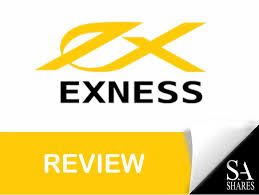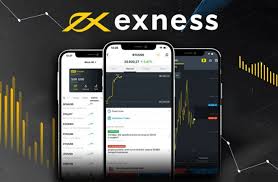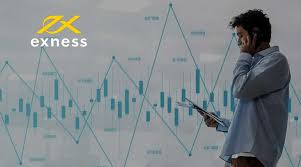Understanding the Legality Of Trading With Exness 1
U n d e r s t a n d i n g t h e L e g a l i t y O f T r a d i n g W i t h E x n e s s 1

The Legality Of Trading With Exness: A Comprehensive Guide
In the dynamic world of online trading, understanding the legality of your trading platform is crucial. Exness, a well-known forex brokerage, has garnered much attention for its services and trading conditions. This article aims to explore the legality of trading with Exness, focusing on various aspects such as regulatory compliance, regional legality, and practical considerations for traders. For more insights on the legality of trading, you can check this link: Legality Of Trading With Exness https://forex-level.com/is-exness-legal-in-saudi-arabia/ While Exness operates globally, its legality varies by jurisdiction, making it essential for traders to understand how these regulations impact their trading activities.
Understanding Exness and Its Regulatory Framework
Exness was established in 2008 and has since gained a strong reputation in the forex trading community. The brokerage is known for its competitive spreads, a wide range of trading instruments, and a user-friendly trading platform. However, one of the key factors that influence its legitimacy is the regulatory framework under which it operates.
Exness holds licenses from several regulatory bodies, including the Financial Sector Conduct Authority (FSCA) in South Africa and the Cyprus Securities and Exchange Commission (CySEC) in Cyprus. These regulatory frameworks are designed to protect traders and ensure that brokers adhere to high standards of conduct. However, it is important to note that the level of protection and oversight can vary significantly depending on the regulatory body.

Regional Variances in Legality
The legality of trading with Exness can differ substantially depending on a trader’s location. In regions like Europe, traders can benefit from strong regulatory protections offered by entities like CySEC. Traders in these regions often find comfort in the transparency and security that comes from trading with a regulated broker.
Conversely, certain countries impose restrictions on online trading, including forex trading. For example, in jurisdictions where trading is banned or limited, users may face legal repercussions for trading with brokers like Exness. It’s crucial for traders to research their local laws before engaging in forex trading.
Compliance and Best Practices for Traders
To ensure compliance while trading with Exness, traders should follow these best practices:
- Research Local Regulations: Before starting to trade, it’s important to understand your country’s stance on forex trading and the legality of using brokers like Exness.
- Verify Broker Licensing: Always check to see if the broker has the necessary licenses to operate in your jurisdiction. This can provide some assurance regarding their legitimacy.
- Utilize Demo Accounts: Many traders start with demo accounts to familiarize themselves with the trading platform and its features without risking real money.
- Understand Tax Obligations: Different jurisdictions have varied tax obligations for forex trading profits. Always consult a tax professional to ensure compliance with local tax laws.
Trade Safely with Exness

While Exness offers attractive trading conditions, safety remains a primary concern for many traders. Brokers that are regulated provide a level of credibility; however, traders should also consider the following:
- Use Strong Security Measures: Ensure your trading account is secured using two-factor authentication (2FA) and strong passwords.
- Educate Yourself: Continuous education about trading strategies, market conditions, and platform functionality can help traders make informed decisions.
- Avoid Unsolicited Tips: Be cautious of unsolicited investment tips, especially from unknown sources, to avoid scams.
The Role of Regulations in Forex Trading
Regulations play a pivotal role in creating a safer trading environment for forex traders. They help to protect against fraud, ensure fair trading practices, and provide mechanisms for dispute resolution. Understanding how regulations affect trading platforms can empower traders to make better decisions.
Moreover, regulatory bodies often set strict guidelines that brokers must follow, ensuring that they operate transparently and maintain adequate capital reserves. For instance, brokers may be required to segregate clients’ funds from their own, adding another layer of security.
Conclusion: Evaluating the Legitimacy of Trading with Exness
In conclusion, the legality of trading with Exness is a multifaceted issue that depends significantly on the trader’s jurisdiction and the regulatory status of the broker. While Exness is regulated by several respected authorities, it is imperative for traders to stay informed and comply with local laws and regulations. By doing so, they not only safeguard their investments but also contribute to a more secure trading environment. Whether you are an experienced trader or just starting, understanding the regulatory landscape can enhance your trading experience and reduce risks significantly.

Katerina Monroe
@katerinam • More Posts by Katerina
Congratulations on the award, it's well deserved! You guys definitely know what you're doing. Looking forward to my next visit to the winery!
